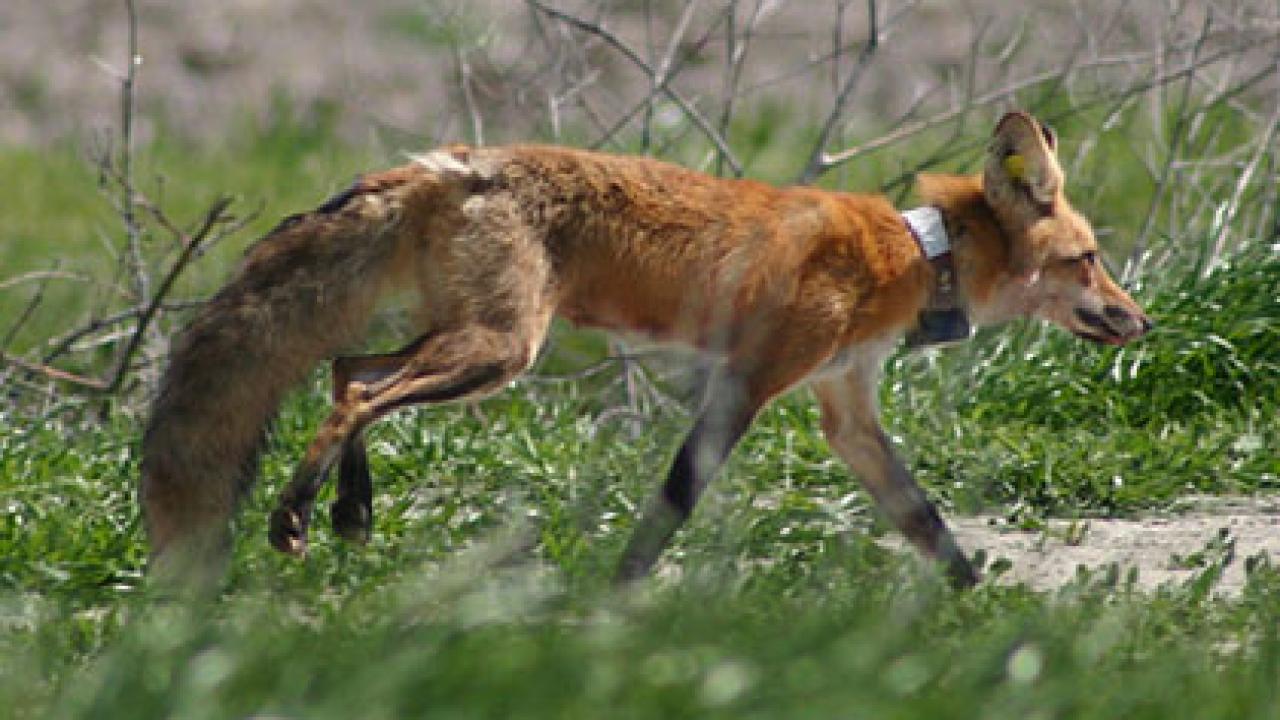Thanks to 350 people who reported native red fox sightings in the past two years, UC Davis researchers have studied 26 Central Valley dens, identified more than 100 individual foxes, and are expanding their technology to include remote camera surveys, hair snares, and radiotelemetry.
"One female fox genetically typed at a den in Dixon in 2007 ended up the mother to a litter of three pups in Davis in 2008," said the study's lead researcher, Ben Sacks, a UC Davis expert in canine genetics.
The team is asking again for reports of red foxes, living or dead, in the Sacramento Valley and in the high elevations of the Sierra Nevada and Cascades mountains (http://foxsurvey.ucdavis.edu).
Sacks said that contrary to onetime scientific opinion, red foxes living in the Sacramento Valley are not an artificially introduced species that threaten local ecosystems. Instead, they are natives, and close cousins to the native Sierra Nevada red fox.
(In other low-elevation parts of the state, such as the San Joaquin Valley and coastal areas, red foxes are indeed non-native, invasive and threaten several sensitive bird species.)
Sacks is an assistant adjunct professor in the UC Davis School of Veterinary Medicine. He also is an assistant professor of biology at Sacramento State University. Sacks' collaborator is Heiko Wittmer, a UC Davis population ecologist and an assistant adjunct professor of wildlife, fish and conservation biology. Also on the team: a UC Davis postdoctoral researcher, Mark Statham, and several graduate and undergraduate students at Sacramento State and American River College.
Their study is funded with $342,000 from the California Department of Fish and Game.
Media Resources
Ben Sacks, School of Veterinary Medicine, (530) 754-9088, bnsacks@ucdavis.edu
